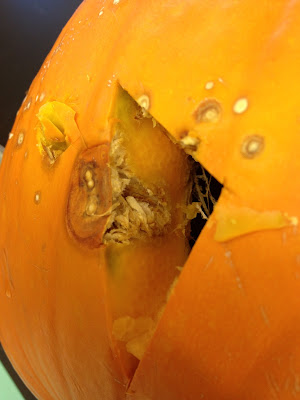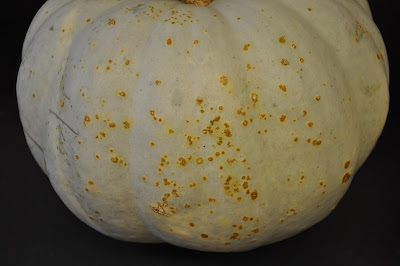 |
| Bacterial leaf spot on pumpkin leaf. Note the yellow halo surrounding the dark lesion. (Photo: NMSU - PDC) |
Bacterial Leaf Spot of Cucurbits – Bacterial leaf spot of cucurbits is
caused by the bacterium, Xanthomonas campestris pv. cucurbitae. This disease
causes sporadic losses in cucurbit crops grown in temperate climates. In New
Mexico, the disease is not common, but can occur when warm, humid conditions
are persistent. The disease attacks a number of different hosts including
pumpkin, cucumber, gourds, and summer and winter squash.
Symptoms may
appear on both the foliage and the fruit. On the foliage, the disease causes
small somewhat round water-soaked lesions on the underside of the leaf. A
yellow spot appears on the upper leaf surface. In a few days, the spots turn
brown with a distinct yellow halo. The appearance on fruit is variable and
depends on rind maturity and how much moisture is present. Initial lesions are
typically small, slightly sunken, mostly round spots with a tan to beige
center. As the spots enlarge (reaching up to 15 mm in diameter), they become
noticeably sunken and the rind may cracks.
 |
| Bacterial leaf spot lesion extends into the seed cavity (Photo: N. Goldberg, NMSU-PDC) |
 |
| Bacterial leaf spot on a white pumpkin
(Photo: J. French, NMSU-PDC) |


No comments:
Post a Comment